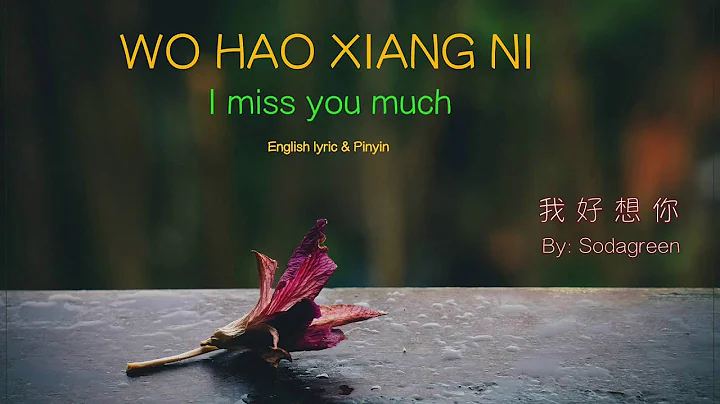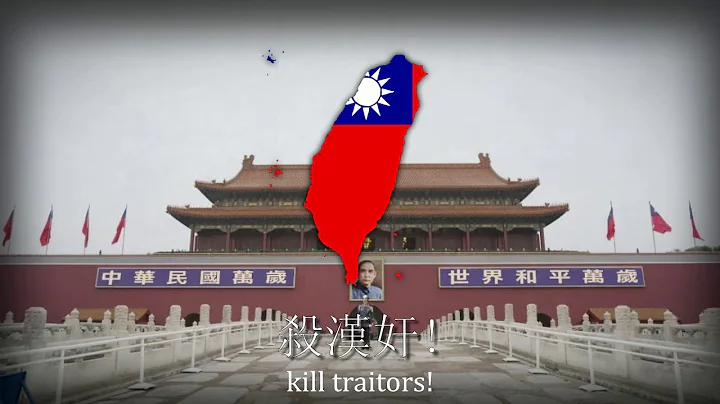In 1988, Hong Kong and Taiwan singers such as Qi Qin, Su Rui, and other singers went north to extinguish the "Northwest Wind" that was popular in the mainland music scene. The mainland music scene was officially completely lost. Hong Kong and Taiwan pop music swept every corner of China like a flood. In the following 1989, the most outstanding performer was Tong Ange, who was known as the "Four Kings of Taiwan" together with Qi Qin, Wang Jie, and later Zhou Huajian. Therefore, 1989 is also called the "Year of Tong Ange" in the mainland music scene. In the blink of an eye, a full 30 years have passed, and Tong Ange is no longer in the world, but the world cannot live without his legend.

The reason why Tong Ange performed so well in 1989 is because he released two albums that year, one was " Actually You Don't Understand My Heart " and the other was "Where Dreams Begin". With these two albums, Tong Ange can be said to have dominated the entire Chinese music scene in those two years. When other singers release an album, they usually only have one or two title songs that can make them popular, but Tong Ange is different. It is almost difficult for you to find a single song in the album. For example, the album "Actually You Don't Understand My Heart" contains songs such as "Will you still love me tomorrow ", "Let Life Wait", "Actually You Don't Understand My Heart", "Unforgettable", etc. For example, the album "Where Dreams Begin" contains songs such as " Girl of Jelia ", " Lend Me a Little Love ", "Where Dreams Begin", etc. Which song was not spread all over the streets back then? ? Which one is not a classic among classics? Even listening to it today, 30 years later, it is still full of charm and has a long aftertaste. People born in the 1970s and early 1980s should still have the impression that the streets at that time were full of Tong Ange's soulful and moving singing, which fascinated countless young people.

What’s more important is that so many of Ange Tong’s classic songs are all his original works. He sings so well, writes so well, and has an elegant and unrestrained appearance. Such a top-notch man has been searching the Chinese music scene for decades. It is really not easy to find someone better than him. Regardless of whether he is high or low, at least one thing is certain. Compared with the recognition and praise of singers (musicians) such as Qi Qin, Wang Jie, Luo Dayou, and Zhou Huajian in the music world, Tong Ange can be said to be the most underestimated in the Chinese music world. A top musician who has been ignored. Of course, the main reason was his low profile and premature retirement. In the mid-1990s, he basically faded out of the music scene and immigrated to Canada.

Tong Ange was born in 1959 (he is 60 years old this year). He has loved participating in singing activities since he was a child and has won many rankings. In 1980, he joined the army after graduation and served as a bugler. In two years, he wrote more than 30 songs. After retiring from the army, he worked in cartoons. In 1982, he began to release songs, and the next year he joined PolyGram as a production assistant. In 1985, he released his first solo album "Miss You", with all ten songs written and composed by himself.

By 1987, Tong Ange had released his fourth solo album "Follow Me". He still composed all the ten songs and wrote most of the lyrics himself. Ange Tong also won the "Most Popular Male Singer Award" voted by Taiwan for this album. This album was introduced to the mainland in 1988 and became very popular.

Next is "Actually You Don't Understand My Heart" in 1989, which is Tong Ange's fifth solo album. Through this album, Tong Ange shocked the music world in one fell swoop and established his status as a first-line superstar. Tong Ange also established his romantic and affectionate aesthetic style with this album, and his songs are very consistent with his "Prince Charming" image and "elegant and talented" temperament. The songs are like the person, and the people are like the songs. The fans were enchanted. This album ranked 21st in the "Taiwan's Top 100 Albums" selection and received both commercial and popular recognition. It not only attracted much attention in Taiwan, but also had a far-reaching impact after being introduced to the mainland.

In 1990, Tong Ange released his seventh solo album "Petal Rain", which included classic songs such as "Petal Rain" and " Leave the Roots ", and entered the Hong Kong market in the same year.He won the "Silver Award for Mandarin Song" among the top ten golden songs for "Yeliya Girl", and won the "Outstanding Mandarin Song Award" for the top ten golden songs in Chinese for "Keep the Roots". Many singers in Hong Kong have invited this talented man to sing or cover his works. For example, Jacky Cheung 's "Drunk by the Sunset " and Alan Tam's "The More I Love, the More It Hurts" are both works by Tong Ange. His popularity in Hong Kong, together with Wang Jie, Qi Qin and other singers from Taiwan, caused the local music scene to fall into "panic". They had to hype up the idol sign of the "Four Heavenly Kings" to resist foreign invasion.

In 1991, Tong Ange held his first ten-consecutive solo tour in the Mainland, and won the "Most Popular Male Singer Award" at the first Guangdong Golden Record; in 1992, he won the China Record Company's Award for his new album "Love and Sorrow" "Golden Disk Award", becoming the first Taiwanese singer to win this award; he also won the "China's Top Ten Most Popular Singer Award" for his song "Keep the Roots"; in the same year, he once again held ten solo concert tours in the Mainland .

What’s interesting is that although Tong Ange has composed and sang many popular songs, in fact, he only “covered” many of them because the first singer was not himself. He originally wrote the song for someone else, but it didn't become a hit for anyone else. In the end, he "covered" it and became popular. For example, "Yelia Girl" was originally written for Liu Wenzheng, who sang it in 1983; "Actually You Don't Understand My Heart" was originally sung by Qiu Haizheng and was first sung in 1987; "Will You Tomorrow" "Still Love Me" was originally sung by Wang Zhilei , first sung in 1985; and "Love in a Lifetime" was originally sung by Jiang Yuheng, "Desert Feet" was originally sung by Huang Yingying , and "Sad Train" was originally sung by Yang Junrong ... It seems that the so-called "excellent singing and writing" is really amazing for a singer, otherwise, so many good songs would have been buried.

Since retiring from the music scene in 1996, Tong Ange has rarely appeared in public again. In 2003, after he released his last solo album "Youth Hand Scroll", he almost disappeared from the entertainment industry. This prince of love songs who once captivated all sentient beings and the king of singers and songwriters who dominated the music scene just disappeared without a trace, but his singing voice will remain in our ears forever, so mellow and meaningful.










![Wanting 曲婉婷 - 我的歌声里 (You Exist In My Song) [Trad. Chinese] [Official Music Video] - DayDayNews](https://i.ytimg.com/vi/w0dMz8RBG7g/hqdefault.jpg?sqp=-oaymwEcCOADEI4CSFXyq4qpAw4IARUAAIhCGAFwAcABBg==&rs=AOn4CLDg8Uk86aSeBIzPhyuQZ0OvxbxwLg)











